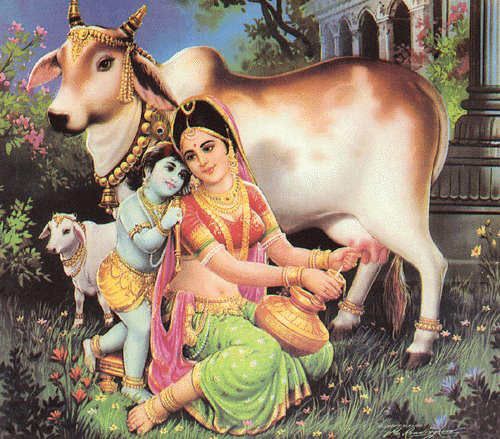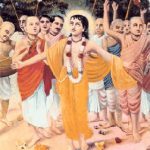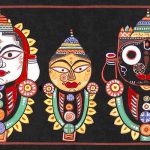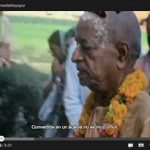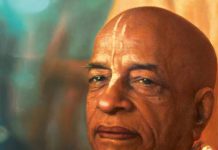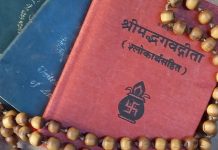From Govinda Maṅgala by Duhkhi Shyamdas
Duhkhi Shyamdas, also known as Duhkhishyam, lived in the late 1500s. He was a disciple of Srila Shyamananda Pandit and an accomplished poet. He was born in the village Hariharpur in the Kedarkund district, about sixteen miles east of Midnapore. His parents were Srimukha De and Bhavani.
In his Govinda Maṅgala he has presented, in various metrical styles, Krishna’s pastimes of the tenth canto of Śrīmad Bhāgavatam, including points from various other sources, such as the Brahma-vaivarta Purāṇa and Srila Sridhar Swami’s Bhāvārtha-dīpikā commentary on Śrīmad Bhāgavatam. It is said that Duhkhi Shyamdas spent his time wandering around in the Midnapore area reciting from his Govinda Maṅgala.
tabe eka dina kṛṣṇa vicāriyā mane
upanīta haila eka gopīra bhavane
On another day, after considering things in his mind, Krishna reached the house of a gopī.
śuna go sundari eka upadeśa vāṇī
kara parṇa kari sara deha goyālini
tomāra bharete tabe nā āsibe cora
satya kathā kahi āmi barābara tora
śuniyā uṣatacitta haila goyālī
dugdhera mohanā haite sara āne tuli
Hearing this that woman became very happy and brought the cream from the bowl of milk.
govindera kara tāhe nahila pūraṇa
kṛṣṇa bale sara āna śuna gopīgaṇa
However, the hands of Govinda were not filled up. Krishna said, “Listen gopīs, bring more cream for me.”
vyanta haila goyālinī ihā dekhi śuni
paḍasīra ghara haite sara māgi āni
The milk maids became restless hearing his words and begged cream from their neighbours.
śateka hāṇḍira sara emana prakāre
bāre bāre dila laiyā govindera kare
Nearly a hundred bowls of cream were brought as they tried again and again to fill the hands of Govinda.
kara-pūrṇa na ha-ila yādumaṇi hāse
khāilā se saba sara ekaī garāse
When the hands of Yadumani Krishna were still not filled, he started laughing. Indeed he ate everything up simply in one morsel.
dekhi camakita gopī nāke dila hāta
mūcaki hāsiyā gṛhe gela gopīnātha
Seeing this, the women were astonished. Gopinatha smiled and left for his home.
— Translated from the edition published by SriBiharilal Sarkar. Kolkata. 1808 Sakabda. (1886)


